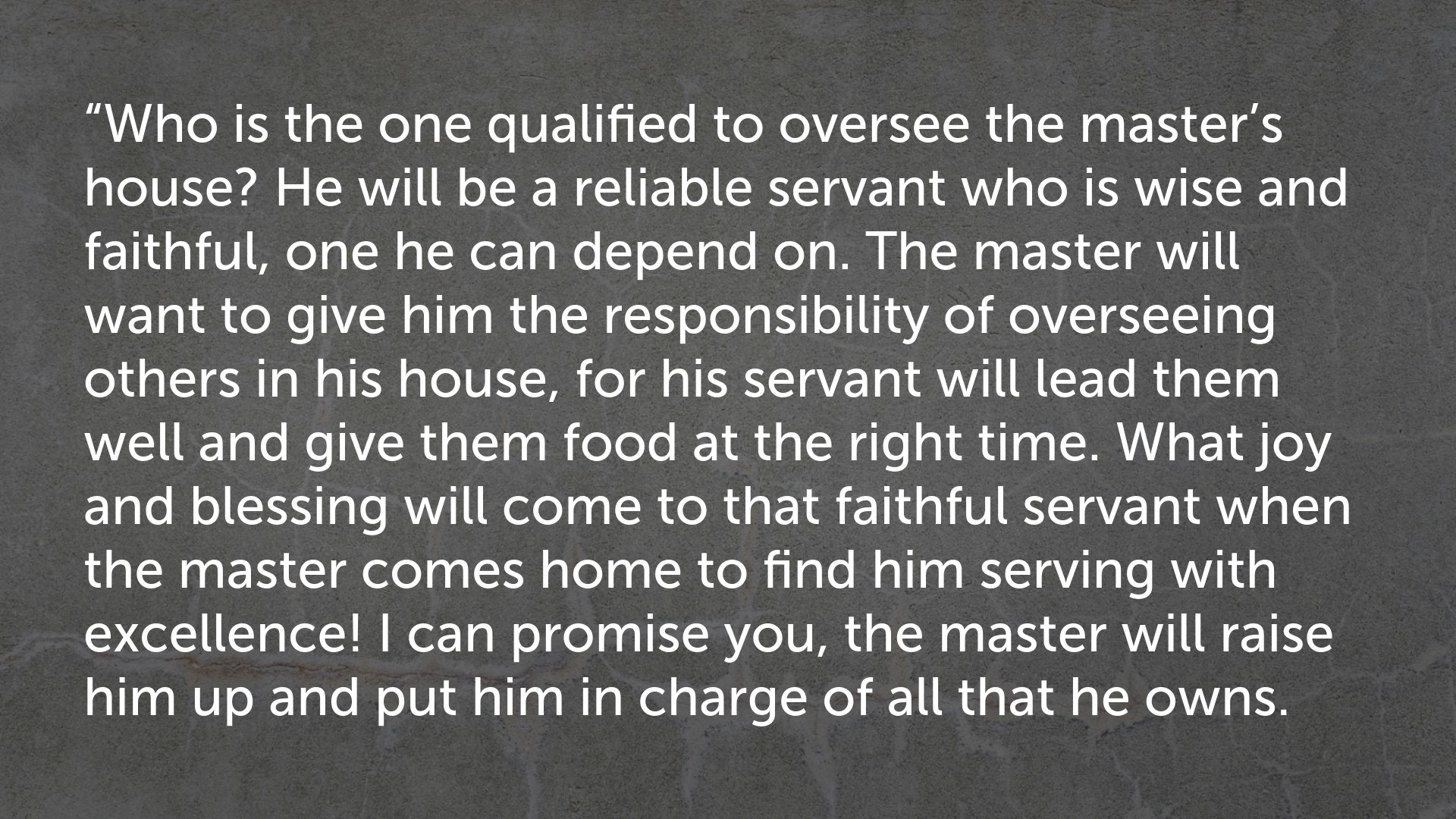Seeking Jesus First - Sept. 27, 2023

Did you know that the word “generation” from the Greek word ‘genea’ is used thirteen times in the Gospel of Matthew?
In each occurrence, the word refers to an “age” of people in the same manner that we would speak of a generation like “generation x” or “the greatest generation”.
This is important because of Matthew 24.
The first time “generation” is used in The New Testament, it is used to count the number of generations from the generation of Abraham to the generation of Jesus in Matthew 1:17. The KJV uses the English word for “generation” a few more times but it is from a different Greek word, so I am not referring to it.
The first time Jesus uses the word is in Matthew 11:16 when he uses the qualifier “this” to tell us which generation He was talking about. “But to what shall I liken this generation? It is like children sitting in the marketplaces and calling to their companions,” (Matthew 11:16, NKJV) It is a clear rebuke of the current generation alive at that time.
In Matthew 12:39-45, Jesus uses the word four times. Jesus weighs the people that He is speaking to against a previous generation that repented when the prophet showed up, saying that those generations would rise up against this wicked generation in judgement to condemn them on the day of judgement because they would not repent.
Jesus finishes this rebuke against them with, “When an unclean spirit goes out of a man, he goes through dry places, seeking rest, and finds none. Then he says, ‘I will return to my house from which I came.’ And when he comes, he finds it empty, swept, and put in order. Then he goes and takes with him seven other spirits more wicked than himself, and they enter and dwell there; and the last state of that man is worse than the first. So shall it also be with this wicked generation.”” (Matthew 12:43–45, NKJV)
There is no doubt that Jesus is speaking to the generation living at that time which would kill Him and persecute His followers.
In Matthew 16, Jesus calls the Pharisees who came and asked Him for a sign a “wicked and adulterous generation.”
In Matthew 17, Jesus admonishes the people for being “a faithless and perverse generation.” Once again, Jesus is clearly speaking to the people and about the people that He is with.
In Matthew 23, Jesus is speaking to the Pharisees and Sadducees. Jesus speaks the eight “Woes” to them beginning each “Woe” with “Woe unto you Scribes, Pharisees, Hypocrites” and follows up with their sins and their pronouncement of judgement. He finishes with this famous declaration of judgement over them and over Jerusalem. “Assuredly, I say to you, all these things will come upon this generation. “O Jerusalem, Jerusalem, the one who kills the prophets and stones those who are sent to her! How often I wanted to gather your children together, as a hen gathers her chicks under her wings, but you were not willing! See! Your house is left to you desolate; for I say to you, you shall see Me no more till you say, ‘Blessed is He who comes in the name of the Lord!’ ”” (Matthew 23:36–39, NKJV)
Matthew 24 is famously used for its description of “End Times”. However, Jesus makes this statement in verses 34-35, “Assuredly, I say to you, this generation will by no means pass away till all these things take place. Heaven and earth will pass away, but My words will by no means pass away.”
A generation, as defined in Scripture is about forty years. It is defined by the time spent in the wilderness after Israel failed to enter in to the promised land because of fear. They wandered in the wilderness for forty years to allow the faithless generation to pass away.
Jerusalem was utterly destroyed according to the prophesy and declaration of Jesus within forty years of these two statements from Matthew 23 and Matthew 24. All that was proclaimed in Matthew 24 was fulfilled within a generation according to Jesus’ prophesy. The historians give account of the fulfillment of these prophesies by Jesus in Josephus’ writings. It is a secular writing by a notable historian.
One might ask, what about verse 35? “Heaven and earth will pass away, but My words will by no means pass away.” I believe this passage should be understood as a statement as to how powerful and sure the Word of The Lord is - not as a statement that heaven and earth will pass away. I believe this because Scripture tells us that all things are upheld by the power of His Word. If what holds something together can’t be denied then the thing held together is as sure as the thing holding it together. Ex. If the Gorilla Glue is sure, then the crack will not break again. Think of a statement like, “When hell freezes over!” It will not happen. However, the statement is used to show how sure the other statement truly is. So I believe it is being used as a euphemism. So, one could read it like this, “If heaven and earth were to pass away, my word would not.”
This is not how it is translated in most translations, but The Passion Translation indicates the understanding that I have from the verse. “The earth and sky will wear out and fade away before one word I speak loses its power or fails to accomplish its purpose.”” (Matthew 24:35, TPT)
When I use Scripture to interpret Scripture, I cannot, with integrity, make “this generation” in Matt. 24:34 mean something different than it means in previous uses by Matthew as he writes the gospel and retells the words of Jesus.
Matthew 24 is about the end of the age of the law as the way God interacts with humanity. Jesus appeared at the culmination of the ages. Jesus fulfilled the old one and gave us a new and better covenant for a new age where the kingdom of God is in the hearts of people who believe in Him. It took forty years from the making of the new covenant for the end of the old covenant to be made completely obsolete with the total desolation and destruction of Jerusalem, the physical temple that existed at the time, and most of the unbelieving Jews who lived in Jerusalem (as many as 1..1 Million people). All of the believing Christian Jews left the city before it was destroyed because Jesus had commanded them to in Matthew 24:16.
Using Matthew 24 for future “end time” prophecies ignores what happened in the next forty years after Jesus prophesied it. Many disagree with this statement. But I write it to you that you should focus on what God called you to focus on. Occupy and do business until He comes. Follow Jesus. Believe in the promises. Love one another. Keep building your family as a testimony to the world that God’s ways are higher and better. Keep faithfully building your church and the kingdom of God in your community. These three remain, faith, hope and love, and the greatest of these is love.
